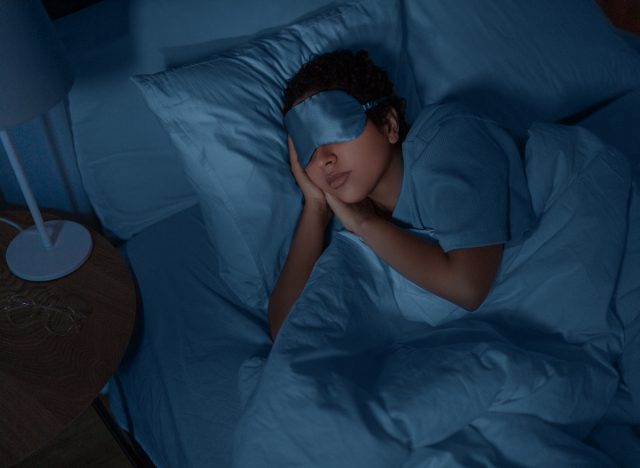The Underrated Benefits Of Good Sleep You Haven’t Heard About, Expert Says

There’s no better way to start a fresh, brand new day than by having a restful night’s sleep leading into it. Waking up in the morning and starting out with a soothing stretch and a smile provides an all-around great feeling. Unfortunately, not everyone is able to catch a full, restful course of Z’s, which can be exhausting as well as incredibly frustrating. Aside from feeling recharged and ready to tackle a full day’s itinerary, there are additional underrated benefits of good sleep that you haven’t even heard about. Read on to see what health benefits you are lacking, and next, check out The 6 Best Exercises for Strong and Toned Arms in 2022, Trainer Says.
The quality of daytime energy, productivity, and alertness majorly depend on sleep

We spoke with Colin Espie, PhD, Co-Founder and Chief Scientist of Big Health and Professor of Sleep Medicine at the University of Oxford to find out why a good night’s rest is so important. Espie explains, “The quality of our daytime alertness, energy, productivity, and mood are all heavily dependent upon sleep. Just think of how you feel the next day if you haven’t slept.” It’s easy to joke around and make light of not sleeping well, but not only is a solid night’s snooze refreshing to have, but it’s also a crucial element your body needs to function.
Related: The Best Clothes To Wear For A Better Night’s Sleep, Expert Says
Like a balanced diet and keeping hydrated, good sleep = good health

Espie continues to explain, “If clean drinking water and sufficient food are crucial to life, so is having enough good quality sleep. Consistent and reliable sleep is paramount for good health, just like a regular balanced diet and staying hydrated.” Putting it that way provides a better perspective on the importance of drifting off to dreamland.
Sleep is a key player in regulating your emotions and supporting your immune system

Your mood and memory are greatly supported by the amount of sleep you get. Not getting enough sleep can also negatively impact your immune system and make you more susceptible to getting sick. Good quantity and quality of sleep strengthen your body’s immune defense. According to Espie, “Sleep is involved in almost everything like clearing metabolic waste from your brain, helping regulate your emotions, and supporting our immune functioning.”
Related: Want to Sleep Better? Avoid These Sleep Positions, Say Experts
Your physical health is dependent on getting the proper amount of good shuteye

Your physical health is dependent on giving your body the right amount of solid shuteye. According to the Centers for Disease Control and Prevention, not recharging enough each night can put you at a greater risk for chronic illness, such as high blood pressure, stroke, heart disease, type 2 diabetes, and even obesity. Surprisingly, not sleeping enough can also shorten your lifespan.
It’s recommended that adults 18-60 years of age receive a total of 7 hours of sleep or more each night. And bear in mind, the quality of sleep needs to be good. If you are not getting a night of solid sleep, waking up throughout the night, still feeling tired when you get up in the morning, or seem to be snoring or possibly experiencing moments of gasping for air during the night, you should speak with your physician.









